Since its establishment, CCG has paid close attention to international relations and China's foreign affairs, tracking the development and changes of China's bilateral economic and trade relations with the United States, Canada, Europe, Asia, Africa, Latin America, Australia, the Middle East and other countries and regions, and has been devoted to research on China-US-Europe cooperation, the Belt and Road Initiative, WTO reform, CPTPP and other multilateral topics, as well as providing recommendations for policymaking.
The annual flagship forums held by CCG for successive years have contributed to discussion on China-U.S. relations and China-EU cooperation, promoted international exchange, and given full play to the role of think tanks in track II diplomacy. CCG regularly conducts research and exchanges in multiple countries, and published a series of Chinese and English research reports on China-U.S. economy and trade relations.
The think tank hosts a series of roundtable seminars all year round, and invites think tank experts and scholars, political leaders, business elites and diplomats from the United States, Canada, Britain, Australia, Japan, Germany, Egypt and other countries to discuss and exchange views on international relations and multilateral cooperation.
-
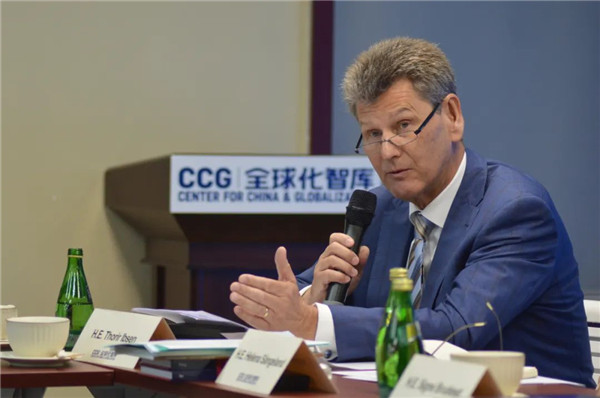
H.E. Thorir Ibsen Speaks at CCG Ambassadors’ Roundtable
As for the general observation, the Nordics are pragmatic. We avoid using strong words in our analysis of state-of-affairs. We believe that dramatized language is not helpful and in fact can be dangerous as it can encourage reactions and solutions that are neither useful nor peaceful.
July 24 , 2023 -
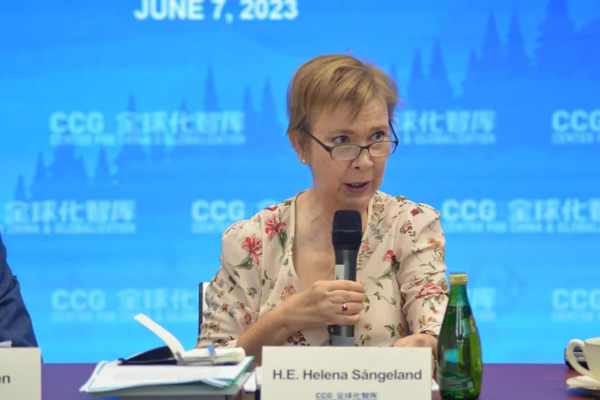
H.E. Helena Sångeland Speaks at CCG Ambassadors’ Roundtable
Presentation by H.E. Helena Sångeland, Ambassador of Sweden to China
July 07 , 2023 -
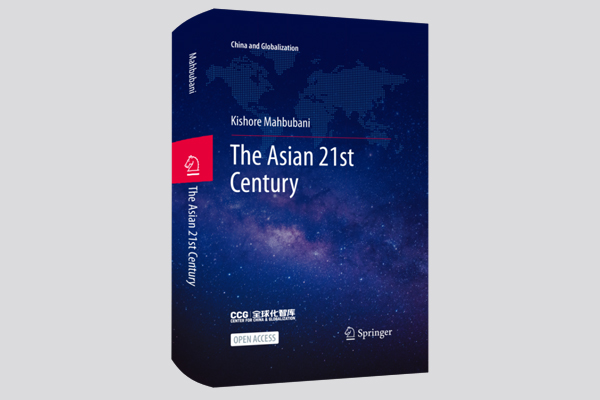
The Asian 21st Century e-book downloads top 3 million! Chinese version already published by CITIC
As of July 3rd, downloads of The Asian 21st Century e-book exceeded 3 million! The book, authored by Singapore veteran diplomat Kishore Mahbubani, is part of the “China and Globalization” series, which is jointly published by the Center for China and Globalization (CCG) and Springer Nature Group.
July 06 , 2023 -
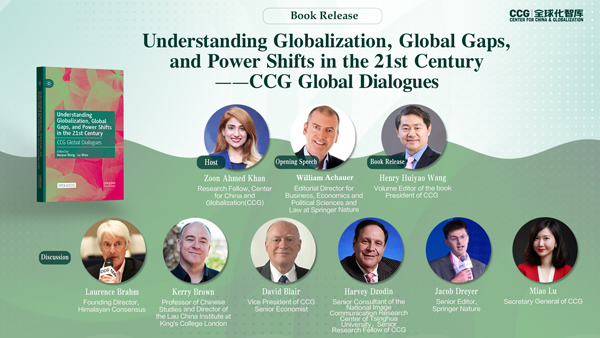
Book Release | CCG Global Dialogues
On December 16, 2022, CCG released the new book CCG Global Dialogues: Understanding Globalization, Global Gaps, and Power Shifts in the 21st Century during the 7th China Global Think Tank Innovation Forum. The book was edited by Wang Huiyao, President of CCG and Miao Lu, Secretary General of CCG, and was published by Palgrave Macmillan, an internationally renowned publisher.
December 16 , 2022 -
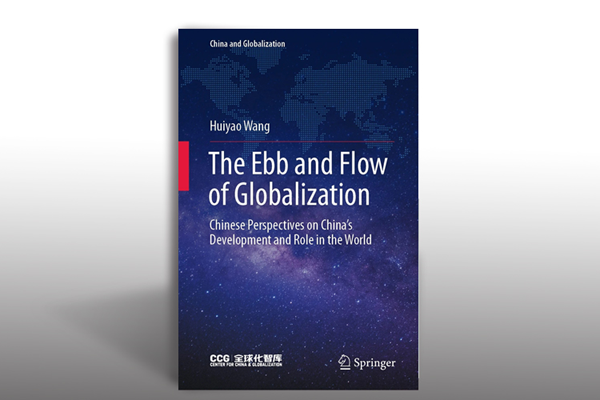
CCG Book: The Ebb and Flow of Globalization
The Ebb and Flow of Globalization is the fifth book in the “China and Globalization” series. This series seeks to create a balanced global perspective by gathering the views of highly influential policy scholars, practitioners, and opinion leaders from China and around the world.
December 15 , 2022


